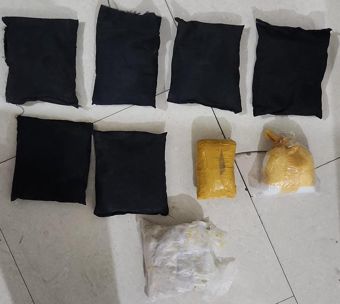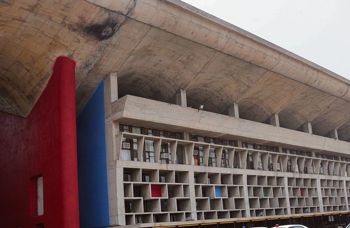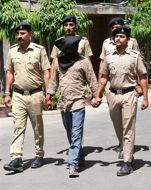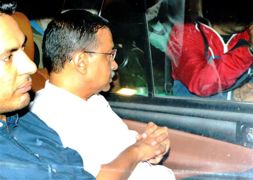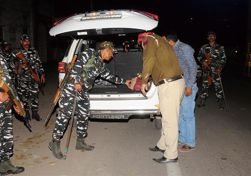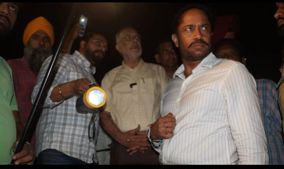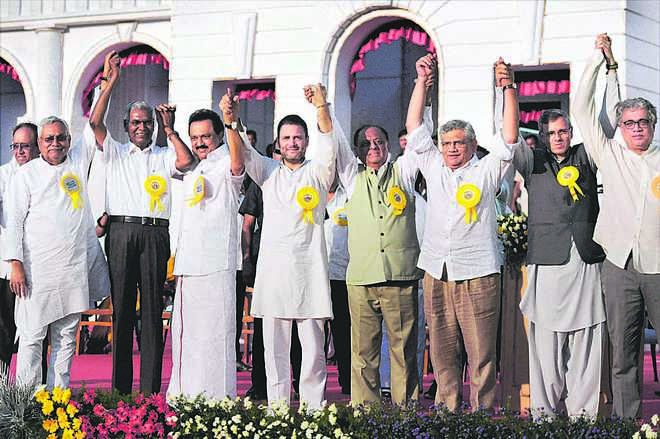
United we survive: (From L) Bihar CM Nitish Kumar, CPI General Secretary D Raja, DMK leader M K Stalin, Congress Vice-President Rahul Gandhi, DMK leader Durai Murugan, CPM leader Sitaram Yechury, former J&K Chief Minister Omar Abdullah and Trinamool Congress Spokesperson Derek O''brien, at the 94th birthday celebrations of DMK President M Karunanidhi, in Chennai. PTI
CP Bhambhri
Political parties in a highly competitive multipolar political system compete against one another by winning over the support of multiple social constituencies on the basis of distinctiveness of their socio-economic policies and programmes. They also mobilise their supporters and extend their catchment area by targeting the ruling arrangement with a better alternative programme.
Any prophecy in politics is foolhardy. However, keeping in mind the overall context of Indian politics, it is quite plausible for the Narendra Modi-led government to remain in office because the popular mood in the country seems to be quite favourable. Prime Minister Modi has not only consolidated his own position, there is no one “leader,” especially in an opposition party, who can be considered a real all-India competitor with acceptability among large sections of society.
This peculiar situation needs a concrete and specific response from the opposition parties. Political parties are fast learners, especially from their electoral defeats. The only lesson from 2014 is that a disunited, divided and fragmented opposition can hardly offer an effective political challenge.
A few facts may be mentioned to highlight the efforts which divided opposition parties are making to form a “non-BJP opposition front”. First, when the BJP was celebrating three years of its government at the Centre on May 26, Congress President Sonia Gandhi had invited leaders of 18 non-BJP parties for a preliminary discussion about a common nominee for the next month's Presidential elections. The real purpose was to bring together opposition leaders to offer a united opposition alternative to the BJP.
Second, on June 3, many non-BJP opposition leaders assembled at Chennai and briefly spelt out their important political differences with the central government. Gradually, non- BJP opposition leaders are starting to sit across the table to spell out their main criticisms of the BJP government at the Centre.
Third, an important step forward in this direction will be taken in Patna in August, where Lalu Prasad Yadav proposes to invite many opposition leaders for a mass rally. The most important achievement and special feature of Lalu Prasad's effort is that for the first time Akhilesh Yadav (Samajwadi Party), Mayawati (Bahujan Samaj Party) and the Congress Party have decided to work together on a forum of non-BJP opposition parties. Incidentally, the electoral washout of all the three in UP and the BJP's extraordinary victory has created a favourable political situation in the country for other non-BJP opposition parties like the CPI (M), the CPI, the Rashtriya Lok Dal, the Janata Dal (United), the DMK, the National Conference, National Congress Party, Trinamool Congress to mention a few important ones, to form a coalition for the 2019 Lok Sabha elections. MK Stalin (DMK) appropriately observed at the Chennai celebrations that those gathered here “….truly represent North to West to South to East”.
A few baby steps have been taken but the future tasks are quite formidable. Such an “alliance” is meant only for the 2019 Lok Sabha elections because many of the partners have political conflicts at the state or sub-regional levels. This is the reason that these parties plan to come together only for the Lok Sabha elections of 2019 and not for every state assembly election. If everyone involved accepts this fact, only then can they form a non-BJP opposition alliance. Further, this group has to identify and agree on minimum issues for which they can work together and effectively oppose Narendra Modi's policies.
The quintessence of alternative politics is that the opposition's “programme and policies” should be really different. A non-BJP opposition alliance should not fall in the trap of making the 2019 electoral contest revolve around the personality of Narendra Modi. In a personality-based contest, Modi will receive very high support. The non-BJP alternative should instead focus attention on “issue -based politics” and try to corner Modi on its Himalayan blunders in national security and the disaster wrought on the common man on social and economic issues.
First of all, they should take up the extremely disturbed situation in the Kashmir Valley by not only opposing the strong-arm military approach adopted by Narendra Modi, but also compel him to work for a national consensus to find a political solution. Some opposition parties had visited the Kashmir Valley and met local leaders but the Centre cold shouldered the initiative. A newly formed group, with former Prime Minister Manmohan Singh as the chairman, should mobilise public opinion for providing a healing touch to the Kashmiris. The opposition coalition should frontally attack the Modi government's non-political approach towards the Kashmir problem and work for a solution that offers a real political alternative. They must explain to their constituents how the Modi government is completely at fault on Kashmir. The non-BJP opposition groups have to project themselves as the “national alternative” and should play a national role on Kashmir. Their politics can be based on the mobilisation of dissatisfied and discontented social constituencies like the Dalits. The opposition political groups can attack, and quite successfully, the Hindutva politics of the BJP and the RSS which has logically led to the “alienation” of Dalits in the BJP-ruled states like Gujarat, Maharashtra et al. A political-ideological struggle has to be launched on the issue of growing atrocities against Dalits, especially in the BJP-ruled states. The non-BJP opposition parties can offer “alternative” policy solutions to the crises faced by the farmer communities as witnessed in various states like Maharashtra, Madhya Pradesh and UP.
The moral of the story is that opposition groups have to offer an alternative package of policies and programmes to those different sections of society that have developed feelings of deep neglect and alienation from the Modi government. Only if the opposition offers an alternative programme to diverse strata of society, can it mount an effective challenge in 2019. The package of alternative politics can emerge only from the grassroots and regional leaders. They are best placed to highlight how the political ideology of Hindutva cannot offer solutions to the felt needs of the deprived strata like Dalits or marginal farmers. This is the road to alternative politics. A secular, democratic political alliance can confront the BJP in 2019 by preparing an agenda of alternative politics and by immediately appointing a coordination committee with a convener to systematically organise protests against the Modi government.
The writer is Professor Emeritus, Centre for Political Studies, JNU.





















